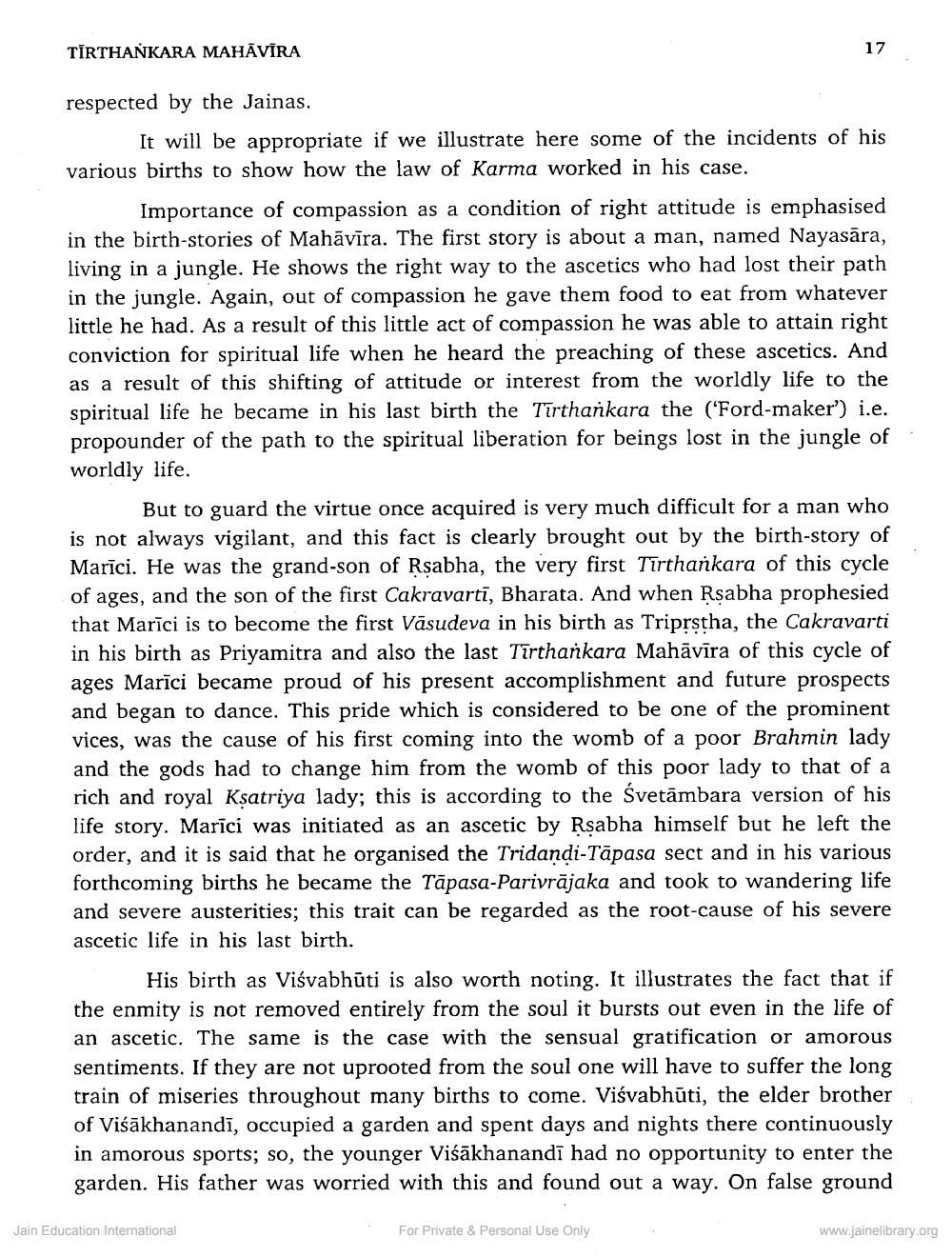________________
TIRTHANKARA MAHĀVĪRA
respected by the Jainas.
It will be appropriate if we illustrate here some of the incidents of his various births to show how the law of Karma worked in his case.
Importance of compassion as a condition of right attitude is emphasised in the birth-stories of Mahāvīra. The first story is about a man, named Nayasāra, living in a jungle. He shows the right way to the ascetics who had lost their path in the jungle. Again, out of compassion he gave them food to eat from whatever little he had. As a result of this little act of compassion he was able to attain right conviction for spiritual life when he heard the preaching of these ascetics. And as a result of this shifting of attitude or interest from the worldly life to the spiritual life he became in his last birth the Tirthankara the ('Ford-maker') i.e. propounder of the path to the spiritual liberation for beings lost in the jungle of worldly life.
But to guard the virtue once acquired is very much difficult for a man who is not always vigilant, and this fact is clearly brought out by the birth-story of Marīci. He was the grand-son of Rsabha, the very first Tirthańkara of this cycle of ages, and the son of the first Cakravarti, Bharata. And when Rsabha prophesied that Marici is to become the first Vasudeva in his birth as Triprstha, the Cakravarti in his birth as Priyamitra and also the last Tirthankara Mahāvīra of this cycle of ages Marici became proud of his present accomplishment and future prospects and began to dance. This pride which is considered to be one of the prominent vices, was the cause of his first coming into the womb of a poor Brahmin lady and the gods had to change him from the womb of this poor lady to that of a rich and royal Ksatriya lady; this is according to the Svetāmbara version of his life story. Marici was initiated as an ascetic by Rsabha himself but he left the order, and it is said that he organised the Tridandi-Tāpasa sect and in his various forthcoming births he became the Tāpasa-Parivrājaka and took to wandering life and severe austerities; this trait can be regarded as the root-cause of his severe ascetic life in his last birth.
His birth as Viśvabhūti is also worth noting. It illustrates the fact that if the enmity is not removed entirely from the soul it bursts out even in the life of an ascetic. The same is the case with the sensual gratification or amorous sentiments. If they are not uprooted from the soul one will have to suffer the long train of miseries throughout many births to come. Viśvabhūti, the elder brother of Viśākhanandī, occupied a garden and spent days and nights there continuously in amorous sports; so, the younger Viśākhanandī had no opportunity to enter the garden. His father was worried with this and found out a way. On false ground
Jain Education International
For Private & Personal Use Only
www.jainelibrary.org




